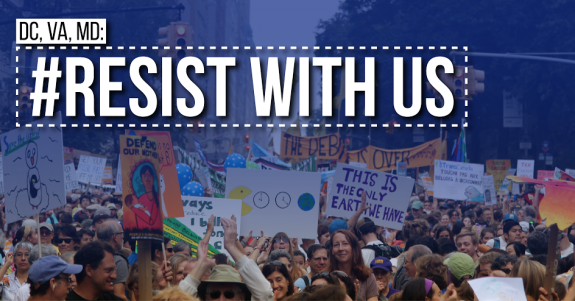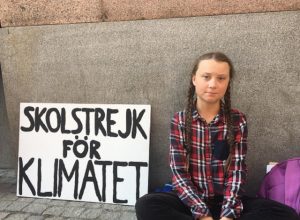Agreed Rules, COP24 and Climate Change Protest

The world, if it goes off in a burn, will do so courtesy of the rules – or their elastic interpretation. It was a fine show of contradiction at Katowice, and the Polish hospitality did not deter the 14,000 delegates drawn from 195 countries from bringing forth a beast of regulation to delight climate change bureaucrats for years. Everyone clapped themselves in way emetic to any bystander suspicious about what had actually been achieved. The question to ask, of course, is whether this fluffy, self-congratulatory exercise makes it past the canapés and becomes a genuine policy document.
Little progress was actually made on the issue of commitments to cut emissions, even if there was, in principle, an agreement on a set of rules to implement the 2015 Paris Agreement. As things stand, the planet is set to reach 3°C, while the Paris Agreement stresses the need to keep matters manageable to an increase of 1.5°C, which would lead to more modest environmental destruction. Considerable troubling silences persist on the issue of technicalities. What, for instance, constitutes a suitable, measurable reduction in emissions or who monitors a country’s progress.
There were certain concessions. Poorer states received more solid reassurances of assistance from wealthier states to deal with greenhouse-gas emissions and attendant environmental challenges. China was pressed into accepting certain uniform guidelines to measure those emissions. States who cannot follow the “rules” to reduce emissions must explain why and show a pathway to redress that failure, more a case of nudging than punishment.
Coal advocates would not, however, have left COP24 dispirited. Poland’s own president, Andrzej Duda, gave a rumbustious display of refusal: his country, with 80 percent of its energy derived from coal, could not be asked to abandon 200 years’ worth of reserves before the idealistic abstinence of any green lobby. Poland, not the planet, came first.
Michal Kurtyka, COP24’s chair and secretary of state in the Ministry of Environment, saw little by way of contradiction in a performance run by the Polish Coal Miners Band during the talks, nor coal displays in the foyer greeting guests. It would have been silly, surmised Kurtyka, to dismiss the coal industry. “There are also energy companies of course engaging in a path of sustainable development.”
But a certain smell lingered at COP24, the sense that the conference had been sponsored by the very same entities whose behaviour was to be controlled and, in the future, abolished altogether. Kurtyka did little to dispel the aroma. “I don’t sense that there is a problem with anybody’s participation, provided that we have the same goal.”
The climate change talks were also being held, as it were, in the den of fossil fuel symbolism. Katowice was made by the legacy of coal rich reserves discovered in the mid-eighteenth century. Such delightful irony, as well, that the city could play host both to such a conference and the largest coal company in the European Union.
This did not deter Joanna Flisowska, a Katowice native and policy coordinator on coal for Climate Action Network (CAN) Europe. “We can be such a bright example for the transition away from coal if only we could put effort into using these opportunities.”
On other fronts, the climate change lobby has taken something of a battering. France’s Emmanuel Macron granted some concession to massive protests against fuel-tax rises supposedly designed to curb greenhouse-gas emissions. Living standards have squared off against environmental policies.
The result of the foot dragging has been to illustrate a growing divide between citizen and government official. “Hope,” claimed a despondent May Boeve, executive director of the climate change campaign group 350.org, “now rests on the shoulders of the many people who are rising to take action: the inspiring children who started an unprecedented wave of strikes in school to support a fossil-free [sic] future; the 1,000-plus institutions that committed to pull their money out of coal, oil, and gas, and the many communities worldwide who keep resisting fossil fuel development.”
Australia is particularly illustrative of this point, something emphasised by Greenpeace chief executive David Ritter. “The divide between the Government and the young people of Australia is probably the greatest it’s been since those huge protests of the Vietnam War era, and I think it’s for a similar reason.”
Students of varying ages certainly add to Ritter’s suggestions, with thousands of Australian school children taking to the streets in Melbourne, Sydney, Brisbane, Perth, Coffs Harbour and Bendigo, to name but a spread of Australian cities, insisting that Prime Minister Scott Morrison heed their calls. “The politicians aren’t listening to us when we try to ask nicely for what we want and for what we need,” suggested an irate Castlemaine student Harriet O’Shea Carre. “So now we have to go to extreme lengths and miss out on school.”

Greta Thunberg pictured during her climate strike. Photo: Catherine Edwards/The Local
It was, however, a 15-year-old Swede by the name of Greta Thunberg, whose single person vigil outside Sweden’s parliament building featured the sign “school strike for climate change.” Three weeks were spent sitting in front of the Parliament during school hours, though she did return to classes for four days, using Friday as her weekly day of protest.
At Katowice, she made her own mark, a scolding aunt in the body of a disturbed teenager. “You are not mature enough to tell it like is,” she told delegates in her capacity as a representative of Climate Justice Now. “Even that burden you leave us children.”
Thunberg is right about one fundamental point. “You have ignored us in the past, and you will ignore us again.” But to ignore the future in favour of the present, to cobble together an ineffectual regime that privileges current living standards in the hope that devastation can be postponed, is an inherent condition of the species. Fiddling as the planet burns will continue.









5 comments
Login here Register here-
David Bruce
-
Diannaart
-
Diannaart
-
Paul Davis
-
Phil Gorman
Return to home pageThe climate is changing, although not for the reasons we are being told.
CSIRO scientists claim Australia’s average temperature has already increased 1 degree over the past 20 years.
That should ensure their research funding will continue for the next few years.
What I would like to know is how much of that alleged temperature increase was due to Pine Gap, Laverton (WA), Learmonth, Alice Springs and Tidbinbilla? These centers have weather modification capabilities based on high frequency transmission characteristics.
The household micro wave, allegedly, was invented by a researcher who walked past a radar transmitter and the chocolate bar in his pocket melted.
Tidbinbilla was chosen as the location for the Australian facility because it is close to the capital, Canberra, and hills shield the site from radio-frequency interference.The Complex’s antennas operate at frequencies from 1660 MHz to 32 GHz.
All these facilities are controlled by the USA (CIA, NASA, NSA etc), not Australians. Some or all of these facilities are part of the Echelon system.
Weather modification can induce cyclones, earthquakes and tsunamis, as well as severe tropical and sub-tropical storms. Operation Popeye was one such well documented program I witnessed. Operation Popeye was a highly classified weather modification program in Southeast Asia during 1967–1972. If the USA had that capability in 1967, what can they do now? What can other countries (China, Russia, Israel?) achieve now? Let’s not talk about the earthquake bomb, invented by an Australian engineer and academic, based in Auckland NZ.
Perhaps it is not politically correct to talk about any these issues, or ask question; we don’t want the population to feel helpless?
https://en.wikipedia.org/wiki/Operation_Popeye
David Bruce
FYI
Weather is local.
Climate is global.
https://www.csiro.au/en/Research/OandA/Areas/Assessing-our-climate/Climate-change-QA/How
Yes, scientists need funding to continue their work. The money spent on research is minuscule when compared to politicians, corporate CEO’s, gambling, the sporting industry and many other human activities which contribute less than zero to understanding of the world upon which we depend for our lives.
David Bruce are you talking about HAARP?
I thought this conspiracy theory had been debunked a few years back …
What will any future archeologists make of us?
Will they have evolved enough to learn from our obscene history of wilful ignorance and neglect?
Will it be just another round of wash, spin repeat?